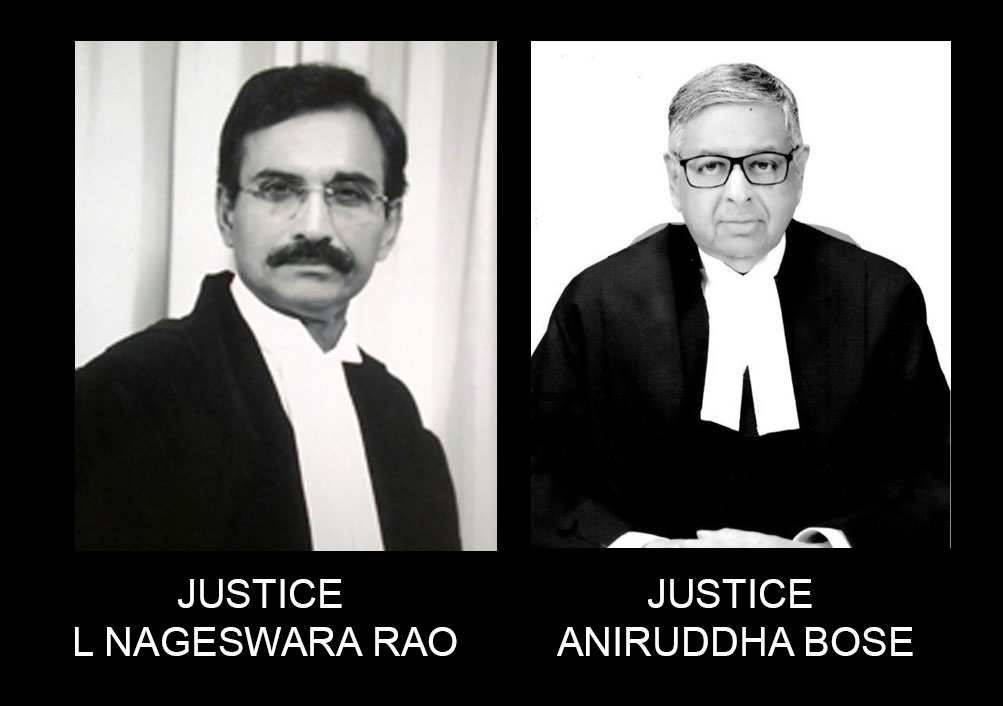In absence of any rule for determination of inter-se seniority, continuous officiation is a well-accepted principle: Supreme Court

Read Judgment: Anand Kumar Tiwari & Ors vs. High Court of Madhya Pradesh & Ors
Pankaj Bajpai
New Delhi, August 13, 2021: While upholding the decision of the High Court in adopting the principle of Rule 12 (1) of the Madhya Pradesh Civil Services (General Condition of Service) Rules, 1961, the Supreme Court has ruled that in the absence of any rule for determining inter-se seniority of direct recruits and promotees, the date of appointment/promotion can be taken into account for fixing seniority.
A Division Bench of Justice L Nageswara Rao and Justice Aniruddha Bose observed that realizing that the principle of continuous officiation is well settled, especially where inter-se seniority is not dealt with in the Rules, the Full Court of the High Court correctly approved the resolution of the Special Committee and after the introduction of the 2017 Rules, seniority inter-se direct recruits and promotees shall be determined on the basis of Roster.
The observations came pursuant to an order of the High Court of Madhya Pradesh determining the inter-se seniority of direct recruited and promotee District Judges through a Limited Competitive Examination (LCE).
The Petitioners in the present case were directly recruited as District Judges to the Madhya Pradesh Higher Judicial Services. Later, a provisional gradation list of the District Judges was issued, wherein the Petitioners were shown as seniors to those District Judges who were promoted through LCE. This led to a representation made on behalf of the District Judges promoted through LCE for altering the gradation list and showing them as seniors to the direct recruits.
The Administrative Committee accepted the representation and resolved to give seniority to three promotees through LCE over direct recruits. Then the Full Court approved the recommendation made by the Special Committee regarding the inter-se seniority of the District Judges.
Therefore, the main grievance of the Petitioners pertains to the order by which the seniority list was issued showing the Petitioners below the District Judges who were promoted through LCE in the year 2009.
The delay that occurred in the amendment of Rules cannot be detrimental to the interest of the directly recruited District Judges, and, therefore, according to the Petitioners, the seniority of District Judges has to be re-determined on the basis of roster by retrospective effect being given to the Madhya Pradesh Higher Judicial Services (Recruitment and Conditions of Service) Rules, 2017.
The delay in the decision taken by the High Court to bring the seniority rule in accord with the directions given by the Supreme Court in All India Judges’ Association & Ors. v. Union of India and Ors on the ground of pendency of SLP before this Court is not justified, observed the Top Court.
The Bench said that the Petitioners are not entitled to the relief of the 2017 Rules being given retrospective effect.
According to Rule 11 (1) of the 2017 Rules, the relative seniority of members of service working on the date of commencement of the Rules shall not be disturbed. The roster shall be prepared and maintained only after the commencement of operation of the Rules. The Petitioners cannot claim that their seniority has to be reworked on the basis of roster as directed by this Court in All India Judges’ Association case, added the Bench.
Therefore, the Apex Court dismissed the petition opining that in the absence of any rule for determination of inter-se seniority, continuous officiation is a well-accepted principle.
Sign up for our weekly newsletter to stay up to date on our product, events featured blog, special offer and all of the exciting things that take place here at Legitquest.




Add a Comment